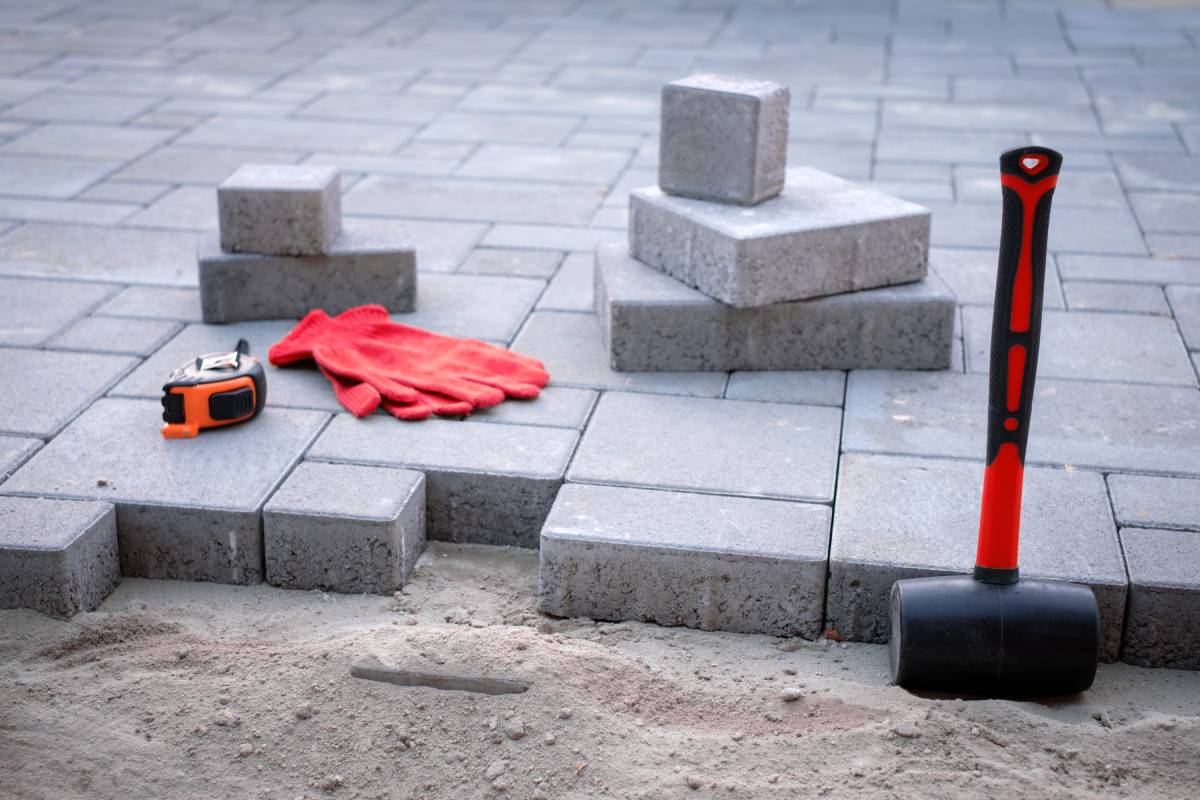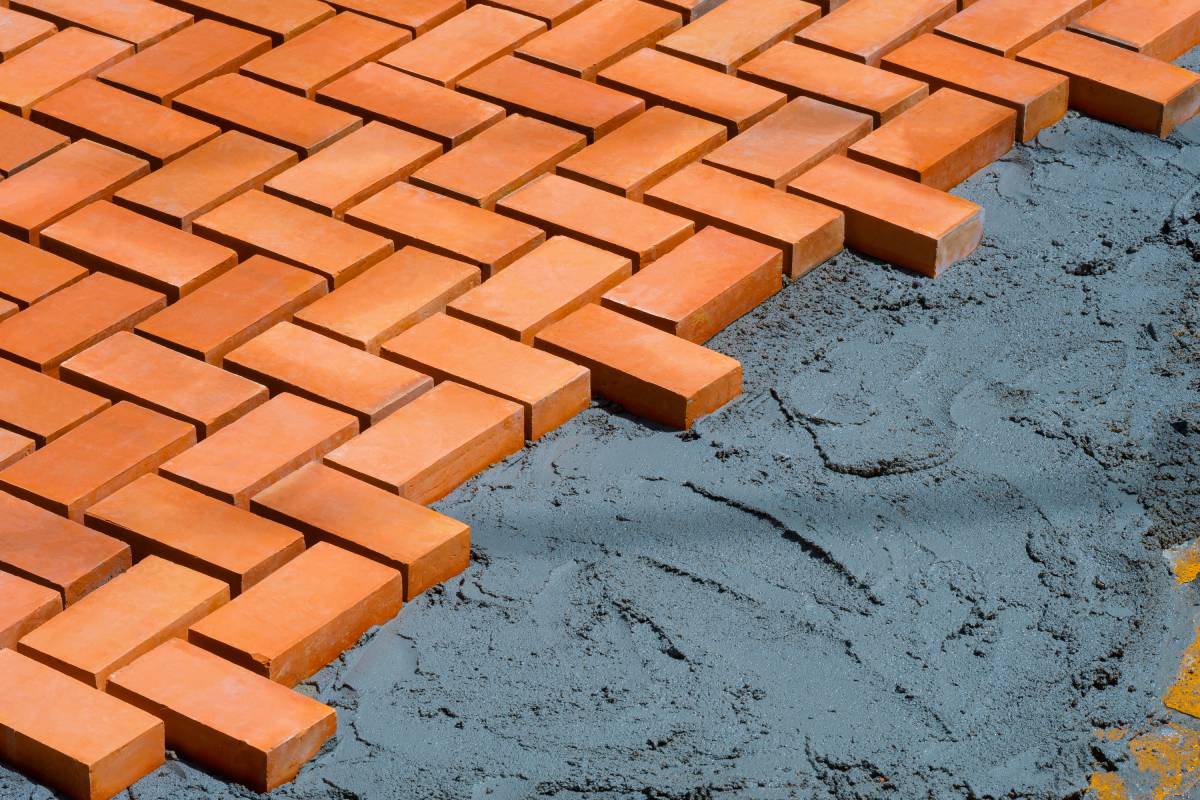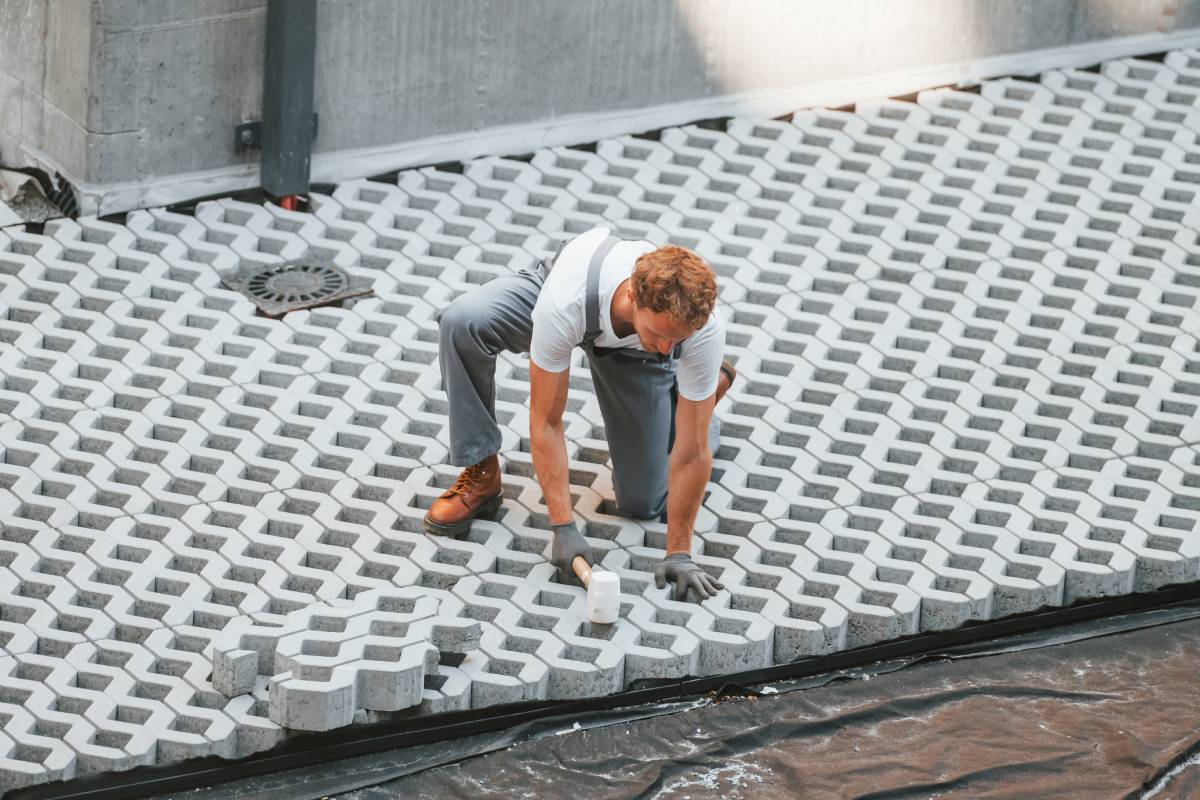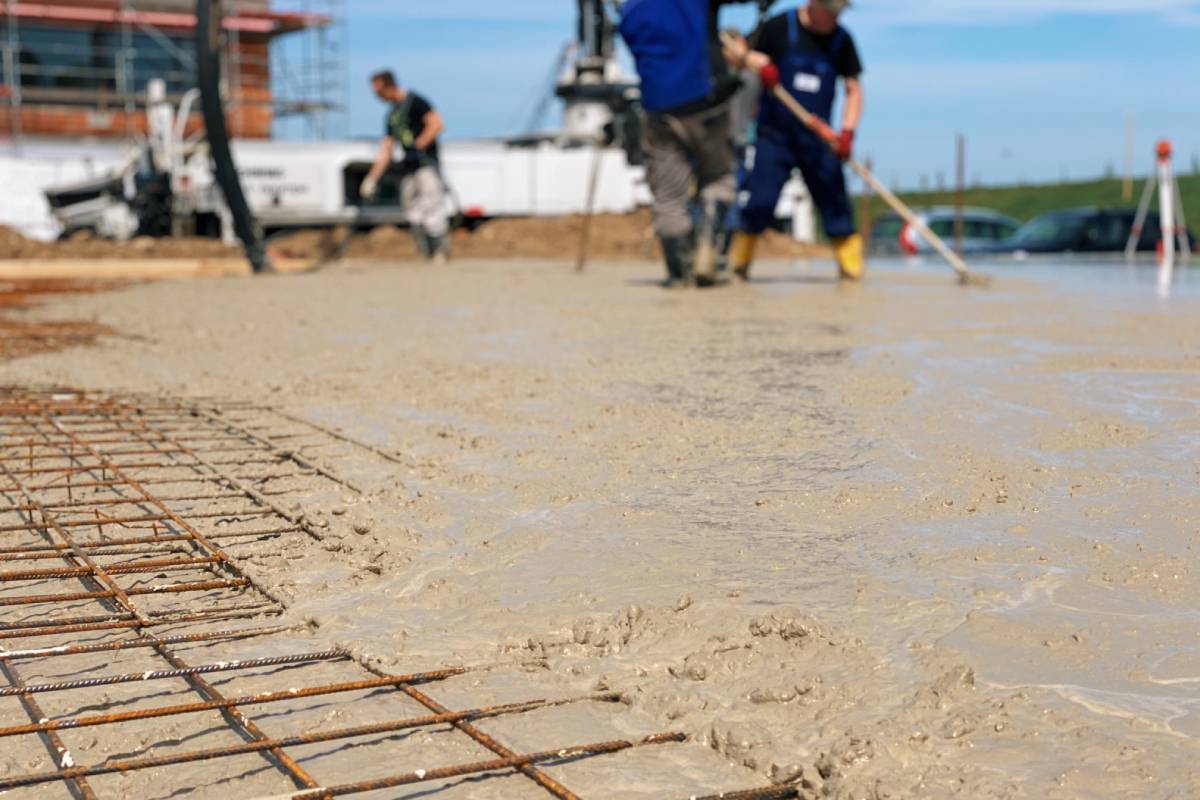When deciding between pavers and concrete, homeowners need to consider various factors. The primary concern for many is the budget. If there’s a fixed budget, opting for the cheapest material might seem appealing.
However, it’s crucial to also think about the long-term implications and maintenance needs of the chosen material.
Related article:
- Checklist Inspection Before Buying a House
- How to DIY Clear a Clogged Shower Drain
- How Often Should I Have My Air Conditioner Checked? Can You Clean Your Own Air Conditioner?
Are brick pavers cheaper than concrete?
When it comes to choosing between brick pavers and concrete for your outdoor spaces like driveways, walkways, or patios, the cost is often a significant factor. Let’s break down the comparison to see which one might be cheaper for you.
Brick Pavers:
Brick pavers are made from clay and are known for their durability and aesthetic appeal. Here’s why they might be a cheaper option:
- Initial Cost: Brick pavers generally have a higher upfront cost per square foot compared to concrete. However, this can vary depending on the type of bricks you choose.
- Installation: While the installation process for brick pavers can be more labour-intensive than concrete, it can sometimes be cheaper because they are easier to cut and shape. This means less specialized equipment is required, potentially reducing labour costs.
- Repair and Maintenance: Brick pavers are relatively easy to repair or replace if they become damaged. You can remove individual bricks without disturbing the rest of the pavement, which can save money on repairs over time.
- Long-Term Value: While the initial cost may be higher, brick pavers can add value to your property and enhance its curb appeal. This could be advantageous if you plan to sell your home in the future.
Concrete:
Concrete is a popular choice for outdoor paving due to its affordability and versatility. Here are some reasons why it might be cheaper:
- Initial Cost: Concrete typically has a lower initial cost per square foot compared to brick pavers. This makes it an attractive option for budget-conscious homeowners.
- Installation: Concrete installation is often quicker and requires less labour compared to brick pavers. The simplicity of pouring and smoothing concrete can result in lower labour costs.
- Durability: Concrete is durable and requires minimal maintenance over time, which can save you money on repairs and upkeep.
- Customization: Concrete offers a wide range of design options, including stamped patterns and coloured finishes, at a lower cost compared to intricate brick designs.
The cost comparison between brick pavers and concrete depends on various factors such as initial cost, installation expenses, repair and maintenance needs, and long-term value. While brick pavers may have a higher upfront cost and require more labour-intensive installation, they offer durability, aesthetic appeal, and potential long-term value. Concrete, on the other hand, is often cheaper initially, quicker to install, and requires less maintenance.
Ultimately, the decision should be based on your budget, aesthetic preferences, and long-term goals for your outdoor space.
What lasts longer: pavers or concrete?
When it comes to durability, choosing between pavers and concrete for your outdoor spaces like driveways, walkways, or patios is a crucial decision. Let’s dive into which one typically lasts longer:
Pavers:
Pavers are individual units usually made from materials like clay, concrete, or natural stone. Here’s why they’re known for their longevity:
- Material Quality: Pavers are often made from durable materials like concrete or natural stone, which are known for their strength and resilience against wear and tear.
- Interlocking Design: Pavers are installed with a tight interlocking pattern, which distributes weight evenly across the surface. This minimizes the risk of cracking or shifting over time, enhancing their longevity.
- Repairability: If a paver becomes damaged or stained, it can be easily replaced without disturbing the rest of the pavement. This ability to address individual issues helps prolong the overall lifespan of the paved area.
- Weather Resistance: Pavers can withstand harsh weather conditions, including freezing temperatures, heavy rainfall, and UV exposure, without significant deterioration. This resilience contributes to their long-term durability.
Concrete:
Concrete is a popular choice for outdoor paving due to its affordability and versatility. Here’s why it’s considered durable:
- Strength: Concrete is a robust material that can withstand heavy loads and frequent use without significant damage. Properly poured and cured concrete can last for decades without major issues.
- Minimal Maintenance: Concrete requires minimal maintenance to preserve its structural integrity. Regular cleaning and occasional sealing can help prolong its lifespan and prevent cracks or stains.
- Climate Adaptability: Concrete is suitable for various climates, including regions with extreme temperature fluctuations or high humidity. Its ability to expand and contract with changing conditions reduces the risk of cracking.
- Customization Options: Concrete offers a wide range of design options, including stamped patterns and coloured finishes, without compromising its durability. This versatility allows homeowners to create unique and long-lasting outdoor spaces.
How much does it cost to pave per square meter?
The cost of paving per square meter varies based on the material you pick. Here’s a breakdown of the prices:
- Concrete pavers: $45 to $70 per m2
- Quartzite pavers: $40 to $80+ per m2
- Limestone pavers: $45 to $90 per m2
- Brick paving: $70 to $100 per m2
- Granite, travertine, or flagstone pavers: $75 to $100 per m2
When it comes to labour, paving contractors usually charge between $25 to $70 per square meter. Labor costs vary by state:
- Victoria: $60 to $70 per m2
- New South Wales: $50 to $60 per m2
- Queensland: $45 to $50 per m2
- South Australia: $35 to $40 per m2
- Western Australia: $25 to $30 per m2
(Source)

To compare services and costs effectively, ask for detailed quotes from local pavers. Several factors influence prices:
- Size and complexity of the job
- Amount of preparation needed
- Type of base and site accessibility
- Inclusion of intricate designs
- Choice of materials (brick, concrete, stone pavers, etc.)
- Local labour rates and market conditions
Establishing a sturdy base is crucial for any paving venture. For a 50m2 area with straightforward access and minimal prep requirements, anticipate spending roughly $1,500 to $1,800 for a crushed rock foundation or $2,300 to $2,800 for a poured concrete base.
Remember, expenses for labour like excavation and base prep are extra and can fluctuate based on location and project intricacy. It’s wise to seek advice from a local paving expert for precise estimates tailored to your project.
The takeaway
Still curious about paver installation costs in your vicinity? Reach out to local paving specialists. Get estimates from several professionals to gauge prevailing rates in your area.
When hiring professionals for paver installation, opt for skilled, insured, and licensed contractors with solid references. Always request a detailed, written quote to understand what’s encompassed in the overall paving expenditure.







